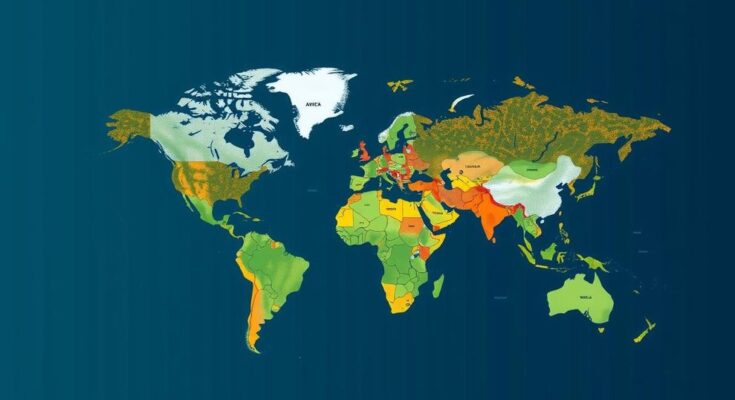The U.N. climate negotiations, initiated at the Rio Earth Summit in 1992, have progressed to COP29 in 2023, focusing on global emissions and climate policy. Key agreements such as the Kyoto Protocol and the Paris Agreement represent significant milestones, with increasing participation from activists raising public awareness. Ongoing discussions highlight the urgent need for a transition from fossil fuels and financial aid for affected regions.
The United Nations climate negotiations commenced in earnest with the establishment of the U.N. Framework Convention on Climate Change (UNFCCC) during the Rio Earth Summit in 1992. These negotiations have progressively evolved from the initial Conference of the Parties (COP) in 1995 to the present day, culminating in COP29 in Baku, Azerbaijan. Significant developments include the Kyoto Protocol, which outlined emissions targets, and the Paris Agreement, which marked a historic commitment from nations to limit global warming to well below 2 degrees Celsius. Furthermore, rising global temperatures and increasing carbon dioxide levels, monitored since the late 1950s, have propelled the urgency for international cooperation. Key moments also involve influential figures such as Al Gore, who raised public awareness through media, and youth activists like Greta Thunberg, who galvanized global protests against climate inaction. Each COP presents both challenges and advancements in the mission to mitigate climate change and support vulnerable regions affected by environmental shifts.
The history of U.N. climate negotiations reflects the growing international consensus on the necessity to address climate change. Initially focused on establishing a framework for collaboration among nations, these conferences have revealed the complexities associated with binding commitments and the disparities between developed and developing nations. Significant scientific milestones, such as the Keeling Curve and alarming temperature data, have influenced negotiations. Over the years, these conferences have witnessed the emergence of pressing issues, including the urgent need to transition away from fossil fuels, adaptation strategies, and financial aid mechanisms for impacted nations.
The trajectory of U.N. climate negotiations underscores the critical engagement of nations in combatting climate change. From the establishment of foundational agreements like the Kyoto Protocol and Paris Agreement to ongoing discussions at COP29, the evolution of these talks illustrates an increasingly urgent call to action. The growing influence of activists and the widespread recognition of climate science reinforce the need for committed global cooperation. As nations navigate their responsibilities amidst complex challenges, the collaborative spirit remains essential for achieving meaningful climatic change.
Original Source: www.swissinfo.ch




